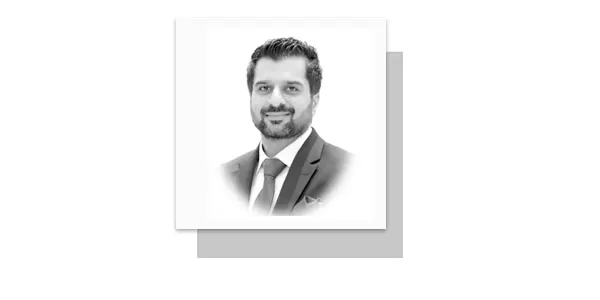EDUCATION is a crucial tool that sets the stage for success throughout one’s life. In the modern era, education is often narrowed down to obtaining job-related skills and ensuring financial well-being. While it is an undeniable part of education, it does not fully define its purpose. Education covers a broad spectrum of important characteristics that steer individuals toward enlightenment and greatness. Although many educational institutions focus on professional success, few prioritize the cultivation of resilient individuals capable of facing life’s challenges with courage. A flawed education system can lead to personal and professional setbacks for young graduates when it fails to train them effectively.
The fundamental objective of an education system should be to foster the cognitive abilities of students. Cognitive development is essential as it lays the groundwork for learning and comprehension. Finland’s education system is highly esteemed globally for prioritizing critical thinking and problem-solving skills instead of rote learning. The education system in Finland promotes independent thinking and questioning, preparing students for the challenges of modern society. In a world full of challenges, critical thinking is crucial for student success. It entails analyzing data, assessing various perspectives and making well-informed decisions. Education should foster compassion, alongside cognitive and critical thinking abilities.
Compassionate people are more skilled at functioning well in society. The objective of programs like social and emotional learning (SEL) in schools is to cultivate emotional intelligence, empathy and interpersonal skills in students. It is the responsibility of educators and their communities to morally prepare students for the circumstances shaped by previous generations. Giving students access to school resources and opportunities is crucial for empowering them to tackle community challenges. To adequately prepare students for the future, educators must prioritize enhancing educational experiences that empower students to solve problems. This involves shifting the emphasis from test scores to classroom processes that generate meaningful learning outcomes. Consider project-based learning (PBL), an educational strategy that fosters students’ involvement in practical projects and real-life problems. Students acquire essential skills for success in the modern world through PBL, including critical thinking, collaboration and communication.
Educational systems need to tackle limitations and prejudices that hinder student opportunities. This means making sure that all students, regardless of their background, have equal access to resources and opportunities. Pakistan’s education system is confronted with various challenges that hinder the effective growth of students’ cognitive and critical thinking capacities. In Pakistan, a significant number of schools lack fundamental infrastructure, such as proper classrooms, libraries and labs. Students’ ability to participate in meaningful learning activities is greatly restricted by this. The lack of qualified teachers is a major problem and teacher training is often insufficient. This has an impact on education delivery and the cultivation of critical thinking and problem-solving abilities.
Rote learning and memorization are the main methods used in Pakistan’s education system, hindering creativity and critical thinking. Many times, students are taught to memorize facts instead of grasping concepts and applying knowledge. Moreover, access to education is unequal, especially for girls and marginalized communities. These disparities are worsened by socioeconomic factors, cultural barriers and security concerns. The curriculum frequently lacks relevance to the needs of the modern world. Essential skills for the 21st century, such as critical thinking and problem-solving, are not being emphasized enough.
Various steps can be put in place to address these challenges. Building and upgrading school infrastructure can yield positive outcomes for learning. This encompasses the provision of suitable classrooms, libraries, labs and technology availability. It is crucial to create teacher training programs that prioritize modern pedagogical techniques, critical thinking and problem-solving. Additionally, teachers need to participate in continuous professional development to remain knowledgeable about current educational practices. Shifting the focus from rote learning to active learning methodologies is necessary. Moreover, encouraging project-based learning (PBL), inquiry-based learning and other interactive teaching methods that engage students and foster critical thinking skills are essential.
Enhancing access to education for all children, irrespective of gender, socioeconomic status, or geographic location, can enhance the system’s efficiency. This includes giving scholarships, transportation facilities and community awareness programs to students to promote the importance of education. It is necessary to revise the curriculum by incorporating contemporary subjects and skills that apply to the present world. Incorporating STEM (Science, Technology, Engineering and Mathematics) education, digital literacy and social and emotional learning (SEL) into the curriculum is the need of the hour. Moreover, it is necessary to involve parents and communities in the education process and promote their active participation in school activities and decision-making to foster a supportive environment for students. Additionally, advocating for education funding, governance and accountability policy reforms is a must. Furthermore, it is crucial to develop strong monitoring and evaluation systems to evaluate the impact of educational programs and interventions.
Education’s true value lies in fostering cognitive abilities, promoting critical thinking and nurturing compassion. Education should empower students to face real-world challenges with resilience and courage and enable them to create a positive impact in their communities and the world. Through meaningful educational experiences and addressing biases and constraints, educators can empower students to achieve lifelong success and make positive contributions to society. Education is not merely a means to an end; it is a journey that shapes individuals and transforms societies. The transformation of Pakistan’s people relies on a complete overhaul of its educational system. Making Pakistan a prosperous state requires policymakers to prioritize the transformation of the education sector. Not paying attention to this critical problem will have devastating consequences for our nation.
—The writer is an educationist and a Commoner from 44th Common, based in Sargodha.
(waqarhassancsp@gmail.com)










